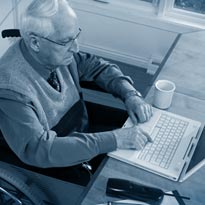Helena Shovelton to chair 2020health
- 17 September 2012

Think-tank 2020health has announced the appointment of Dame Helena Shovelton as its new chair.
The organisation, which issued a plan to ‘save’ the National Programme for IT in the NHS in March 2010 and has since become a strong advocate for telehealth, will publish a report on personal health records tomorrow.
In an interview with eHealth Insider, Dame Helena said the report will look at progress towards the government’s target of giving patients access to their health records by 2015.
However, as a long-standing observer of the public sector, she argued policy makers need to find simpler ways of achieving policy goals and then focus on implementing them.
For example, she argued that patients should be given their records on USB sticks, which they could carry with them.
“What I hope [2020health] can do is to point out what is self-evident and then really focus on making that work,” she said.
Dame Helena has built a career from chairing charities and public bodies. She became chair of the Audit Commission in 1998, but unusually she was not reappointed after her first three year term, amid rumours that a series of critical reports had lost her favour with Labour ministers.
Since then, she has been chief executive of the British Lung Foundation. In her interview last week, Dame Helena said her experience made her sceptical of the idea that the answer to public sector problems was either more money or more reorganisation.
In particular, she said reorganising services led people to “lose concentration” on the big picture, as they wrestled with what change would mean for them.
She expressed concern about the complexity of the latest reforms, and said: “We need to know who is going to report to who, because otherwise it will be easy for people not to take responsibility, and the only person who will lose from that is the patient.”
She added that two decades after the internal market was introduced, there is still a need to make sure that “commissioning is productive, and not just a layer of cost that does not achieve what it needs to do” – particularly as the job is taken up by GPs, who have not been trained as commissioners.
She said 2020health could have a role in tracking this, for example by comparing the performance of the NHS in England with that in other parts of the UK, which have dismantled the purchaser/provider split.
She said she would also like the organisation to identify international best practice, from Europe as well as the US.
“There are people trying to make things work, but we do structural change when what we really need is cultural change,” she said.
“The people we work with at the British Lung Foundation are really ill. They are often going to die in two years. They don’t have time for all this. They need simple ideas that work.”
Dame Helena argued that technology could play an important part in this with telehealth, for example, used to improve support for people with COPD. However, she acknowledged there are still barriers to its introduction.
“[Commissioners] do now know what to buy or how to use it, so it is hard to make a case for it, and we need good evidence for that,” she said. “We need some investment in that. I have tried to say to the DH that to save £20 billion it will be necessary to spend a bit.”
She said she would also like 2020health to do more work on its NPfIT report, and on practical issues such as improving records and coding, which the Audit Commission has consistently identified as an area of concern.
“IT has a definite role, but the money that has to be spent on it is so big that it is hard to prove the benefit,” she said, adding that her experience suggested, again, that the NHS needed to find simpler solutions and make them work.
“I worked at an IT software house in my 20s, and the biggest problem came from not putting in solutions that had been tested and debugged, but from saying ‘that’s great, now make it do x’,” she said. “We need good systems, but we also need to put them in and use them.”



